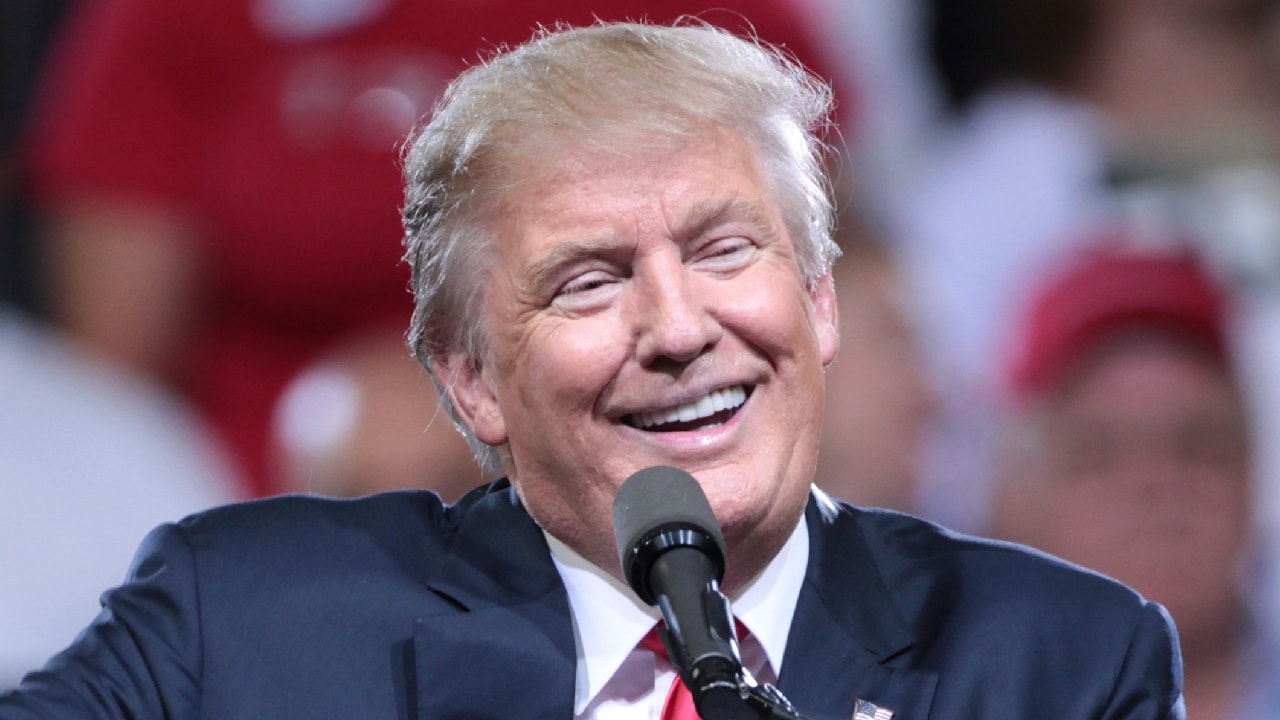During a town hall event hosted by CNN on Wednesday, former President Donald Trump caused a stir when he responded to ongoing negotiations between President Joe Biden and Republican House Speaker Kevin McCarthy about the debt ceiling. As the president and House Republicans battle over proposed spending restrictions in the next budget, Trump argued that it might simply be time to default on the national debt anyway.
Speaking about the Democrats’ refusal to accept Republican spending cut proposals, Trump argued that Biden and Senate Democrats would eventually give in.
“I don’t believe they’re going to do a default because the Democrats will absolutely cave, because you don’t want to have that happen. But, it’s better than what we’re doing right now, because we’re spending money like drunken sailors.”
When interrupted by Never Trump campaigner Kaitlan Collins, the host of the town hall event, who asked President Trump if he thinks the U.S. should default on debt payments, Trump responded in the affirmative.
“We might as well do it now because you’ll do it later,” Trump said. “Because we have to save this country, our country is dying. Our country is being destroyed by stupid people. By very stupid people.”
Collins quickly then reminded the former president of comments he made during his time in the White House.
“You once said that using the debt ceiling as a negotiating wedge just could not happen,” Collins said. Trump reminded the host that he made the comments when he was still president, but when asked why his position has since changed, Trump responded, “Because now I’m not president.”
Trump is perhaps the only politician willing to say that he would default on the national debt – but then again, he’s also the only businessman who could realistically become the next president of the United States.
His comments were met with criticism in every single left-leaning news outlet, with analysts refusing to accept that Trump operates differently. Trump, after all, is the man who negotiated a deal with China that gave U.S. farmers a $16 billion bailout, brought some normalcy to diplomacy between Israel and the Middle East, and replaced NAFTA with the USMCA.
What Would Default Mean?
If Trump is serious, and if he really means he’d rather see the U.S. default on its debt obligations rather than continue to spend money that it cannot afford, then Democrats are right to be concerned.
If congressional Democrats refuse to listen to Republicans’ concerns about out-of-control spending, and if Trump ends up back in the White House in January 2025, then the U.S. could face a severe economic problem.
A document published by the White House in October 2021, described what could happen if the United States defaults on its debt.
The piece, co-written by Council of Economic Advisers chair Cecilia Rouse, describes how failing to pay debt obligations would “fundamentally hinder the Federal government from serving the American people.”
The piece describes how failing to make these repayments would also make it impossible for the United States to borrow more money to pay for everything from maintaining national defense and national parks to the public health system.
International markets would also quickly lose faith in the United States and the dollar, which would be a problem even during good economic times but especially troublesome at a time when the U.S. dollar is in the process of being replaced on the international stage by the Chinese yuan.
Is Trump Serious?
It’s hard to know how serious Trump is about defaulting, especially considering that the man knows how severe the fallout of that could be. However, the response from Collins, CNN, and the Democrats more generally seems to suggest that they still haven’t learned why Trump has such huge appeal.
In 2016, Trump ran on a platform of saving the country by running it like a business, and by using leverage to negotiate deals. Trump’s willingness to play the system and do so openly with a grin on his face – as he did during much of the CNN town hall – shows that he is ready to run the federal government like a business and use the debt ceiling as a negotiating wedge.
At the same time, though, the Democrats’ horror at Trump’s willingness to default on debt payments plays right into Trump’s hands.
Should there be a second Trump administration, and should the Democrats control either chamber of Congress, they now know that Trump is willing to default on the national debt, and negotiating on matters related to the budget should be significantly easier for the Republicans.
And if the Democrats want to call his bluff, they’ll risk major economic instability and a crisis so bad that they wouldn’t want it to happen, even if they could blame it on Trump.
MORE: Could Donald Trump Be Disqualified from Becoming President Again?
MORE: Could Donald Trump Quit the GOP?
Jack Buckby is 19FortyFive’s Breaking News Editor. He is a British author, counter-extremism researcher, and journalist based in New York. Reporting on the U.K., Europe, and the U.S., he works to analyze and understand left-wing and right-wing radicalization, and reports on Western governments’ approaches to the pressing issues of today. His books and research papers explore these themes and propose pragmatic solutions to our increasingly polarized society.

